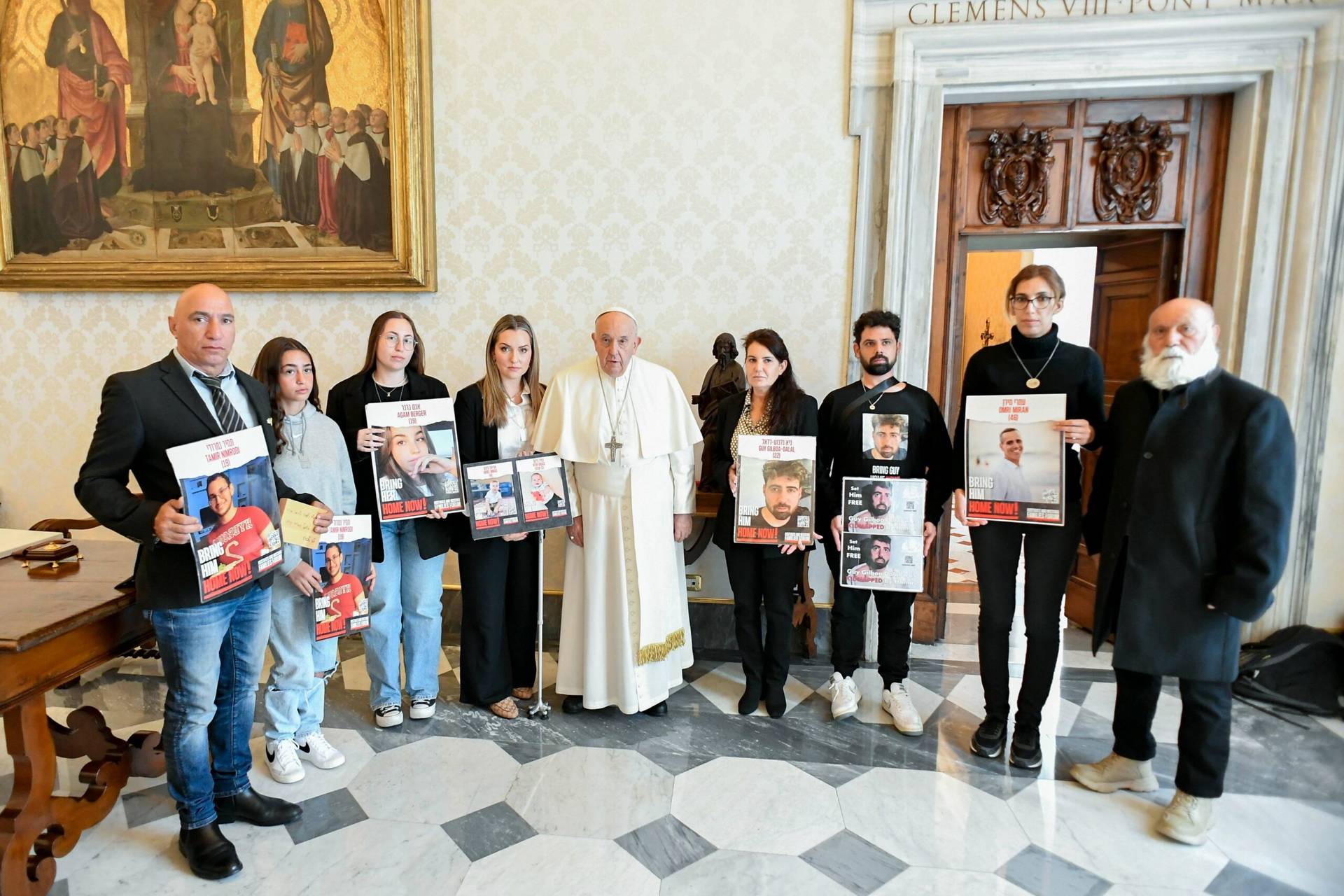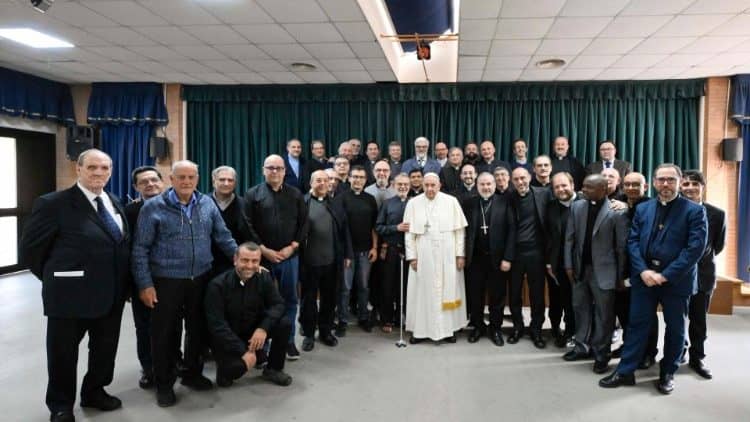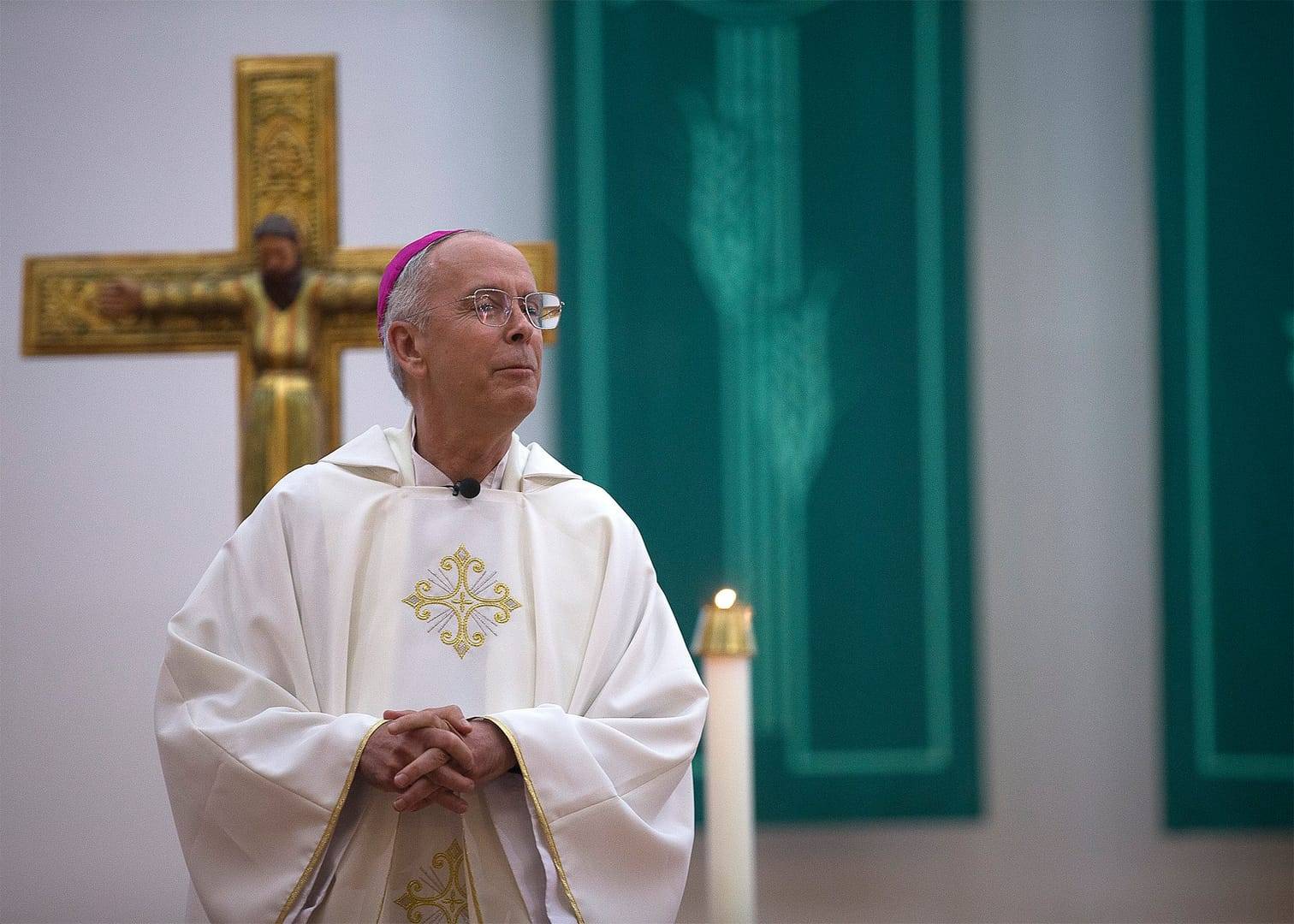ROME— Pope Francis on Monday called aid workers to “dream” of a world without hunger, complaining that too often poverty has become “naturalized,” meaning seen as inevitable and part of the natural order.
The pontiff also blasted what he called the unacceptable “paradox” of a world in which weapons circulate freely, yet humanitarian aid is blocked by politics, self-interest, and petty bureaucratic considerations.
Francis made the remarks in a visit to the Rome offices of the United Nations World Food Program Monday morning.
In conflict zones, Francis said, “The death count multiplies because the number of people dying of hunger and thirst is added to that of battlefield casualties and the civilian victims of conflicts and attacks.”
“We are fully aware of this, yet we allow our conscience to be anesthetized,” he said.
The arms trade was a special focus of the pontiff’s diagnosis.
Weapons, he said, “have gained unprecedented importance,” sidelining other ways of resolving “the present instability of the world situation.”
“Whereas forms of aid and development projects are obstructed by … incomprehensible political decisions, skewed ideological visions and impenetrable customs barriers, weaponry is not,” Francis said.
“It makes no difference where arms come from; they circulate with brazen and virtually absolute freedom in many parts of the world.”
“As a result, wars are fed, not persons,” he denounced. “In some cases, hunger itself is used as a weapon of war.”
This, Francis said, is because some issues have been “bureaucratized.”
Though Francis did not cite specific examples, it’s easy enough to intuit the sorts of situations he had in mind.
In Venezuela, for instance, under the direct orders of Socialist President Nicolas Maduro, the International Catholic Charity Caritas is not allowed to import relief items such as food and medicines, urgently needed in a country where people are dying for lack of flu shots.
After five years of war, it wasn’t until June 5 that European relief agencies were able to send a plane with medical aid to Syria. For this to be possible, the United Nations, with the support of the United States, Britain and other powers, had to urge the Syrian government to end sieges and allow airdrops of aid to hundreds of thousands of people trapped across the conflict-torn country.
“We become desensitized,” Francis said, denouncing that “force is our way of acting” and power “the primary goal.” Those suffering in conflict zones, he continued, not only have suffer the effects of war, but also the obstacles placed in the way of help.
“Hence it is urgent to de-bureaucratize everything that keeps humanitarian assistance projects from being realized,” he said.
Francis was inaugurating an annual meeting of the Executive Board of the World Food Program, and he said this UN initiative has a “fundamental role” in today’s world, led by “true heroes” capable of “blazing trails, building bridges, opening channels concerned with those who suffer are needed.”
Joining a pledge for zero hunger, the pope said that discarding food is stealing from the table of the poor and starving.
The faces of those who’re hungry, he said, are a reminder that “we spoiled” the products of the earth, turning “a gift with a universal destination into a privilege enjoyed by a select few.”
“Food shortage is not something natural, it is not a given, something obvious or self-evident,” he said, adding that the fact that there are people suffering from hunger today is the result of a “selfish and wrong distribution of resources, including the ‘merchandizing’ of food.”
Francis said that faced with the problems of so many, it’s not enough to offer reflections or engage in never-ending discussions: “We need to de-naturalize extreme poverty, to stop seeing it as a statistic rather than a reality.”
Poverty, he said, has a face: “It has the face of a child; it has the face of a family; it has the face of people, young and old. It has the face of widespread unemployment and lack of opportunity. It has the face of forced migrations, and of empty or destroyed homes.”
According to the statistics from the World Food Program, some 795 million people in the world don’t have enough food to lead a healthy life.
One in nine people globally is undernourished.
“We cannot simply say that their situation is the result of blind fate and that nothing can be done about it,” Francis said.
When poverty doesn’t have a face, humanity can discuss “hunger, food and violence” as concepts, disregarding “the real people knocking on our doors today.”
The pontiff also lamented that in an interconnected world marked by instant communication, where technologies have “[brought] us face-to-face with so many tragic situations,” an “information overload” is leading to the “naturalization” of extreme poverty.
“Little by little, we are growing immune to other people’s tragedies, seeing them as something ‘natural’,” Francis said. “We are bombarded by so many images that we see pain, but do not touch it; we hear weeping, but do not comfort it; we see thirst but do not satisfy it.”
Before addressing the assembly, Pope Francis spent a moment of prayer before a Memorial Wall, honoring the life of all the members of the World Food Program who died in action. “We remember them best by continuing to fight for the great goal of ‘zero hunger,’” he said.
“The credibility of an institution is not based on its declaration, but on the work accomplished by its members,” he said, adding off-the-cuff “It’s based on its witness.”
He repeated this concept as he addressed the staff of the UN office, saying that thanks to their “silent witness and sacrifice, so many children have food, so much hunger is fought.”
As he often does in these more informal settings, the pope left his prepared remarks aside because “speeches are boring,” and spoke in Italian instead of in Spanish, since most of the employees are from Italy.
After the pope closed his first address, Ertharin Cousin, Executive Director of the World Food Program, called Francis the “hunger zero hero,” and thanked him for the Church’s and his own commitment to sustainable development.
“Under your leadership we will promote a life of dignity for all,” she said, before presenting the pope with a drawing from a young man in Sri Lanka who dreams of being an engineer.
“[He] drew his vision of a world without hunger, where everyone gets to go to school fully nourished, and where everyone possesses the opportunity to live life to her and his fullest potential, in a free, peaceful, happy and zero hunger world,” Cousin said.

















